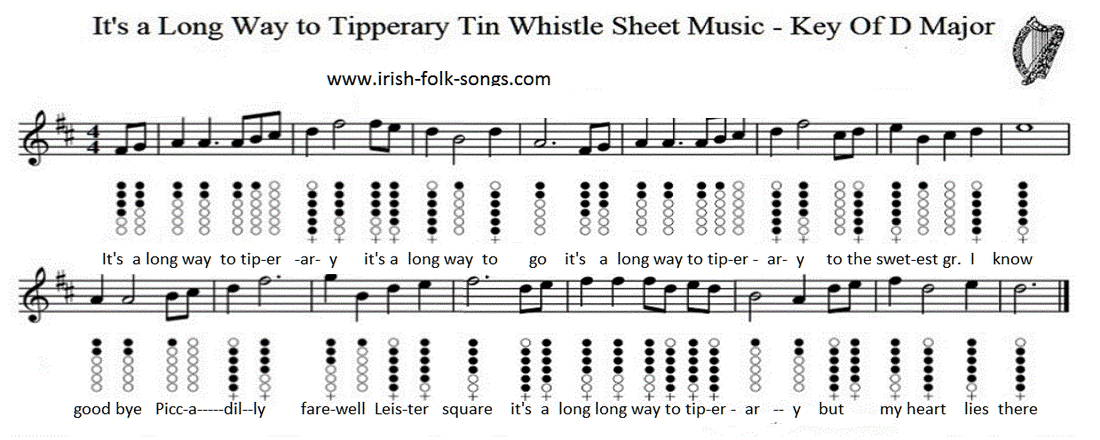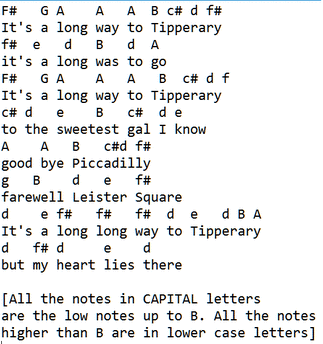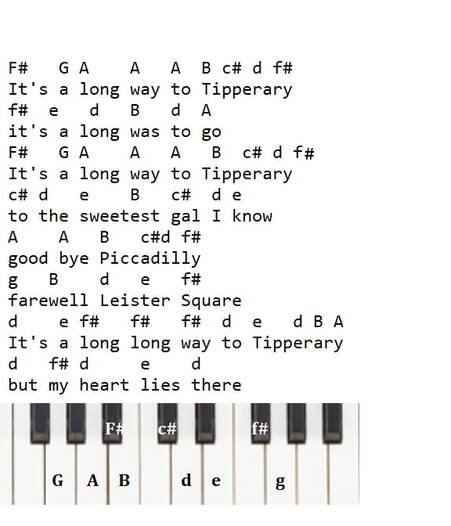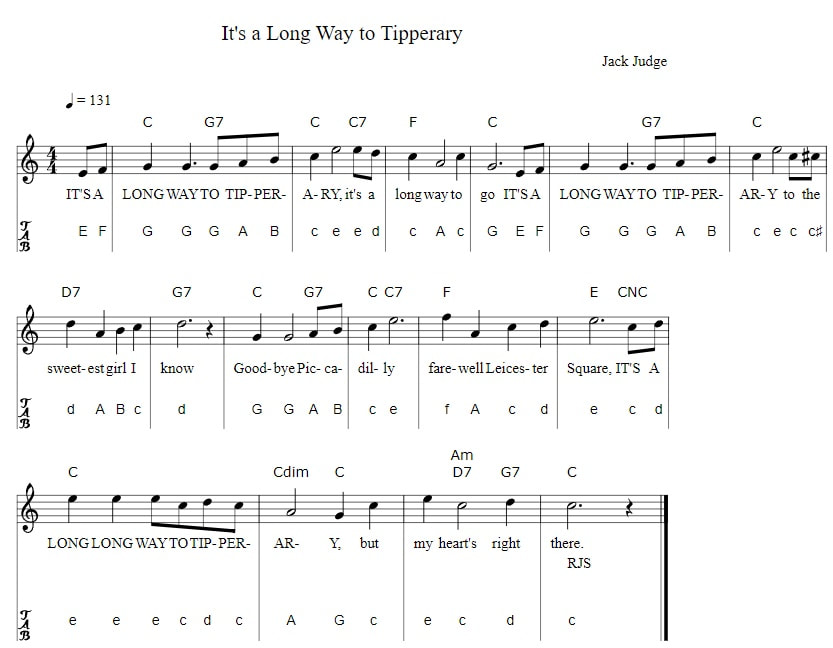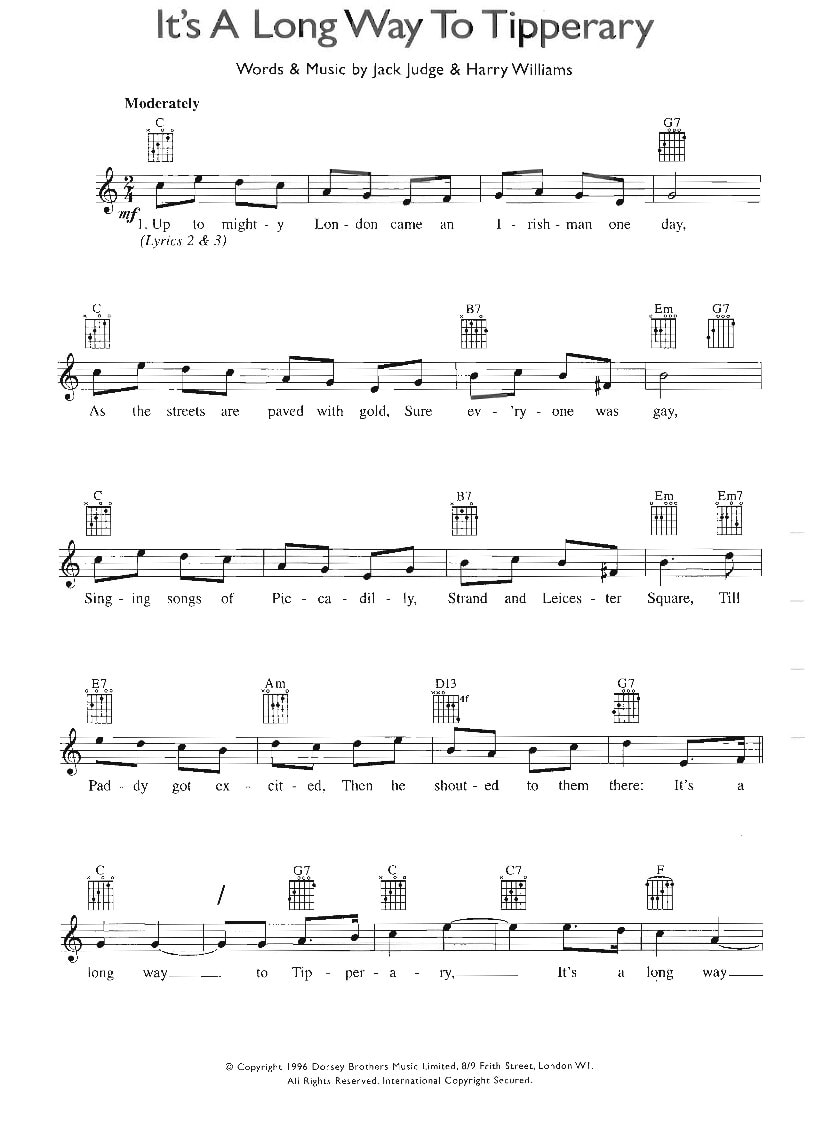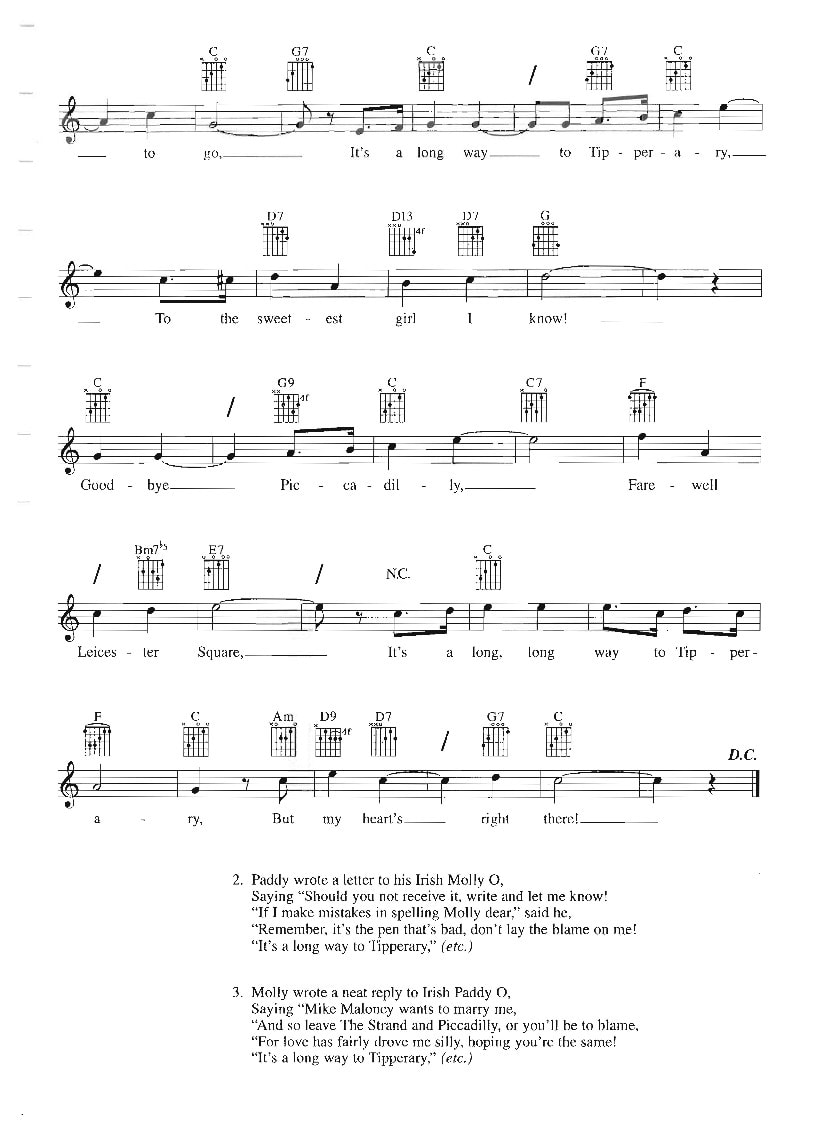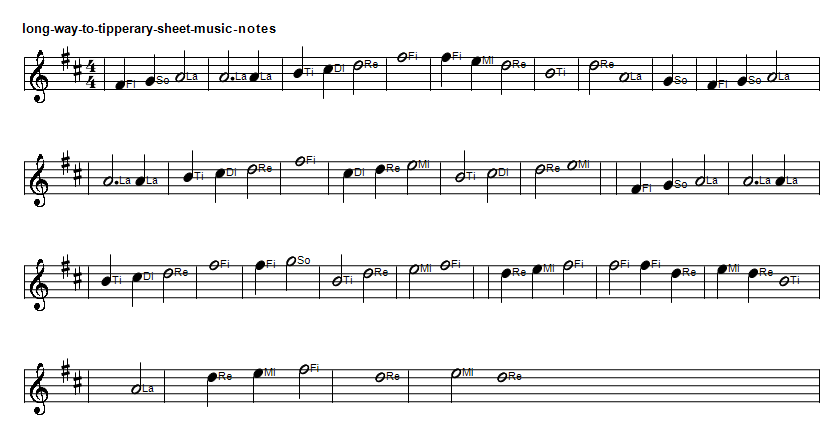It's A Long Way To Tipperary Tin Whistle Sheet Music
It's A Long Way To Tipperary Easy Tin / Penny Whistle Sheet Music Tab with the time signature of 4/4 ..The piano / keyboard letter notes for the tune are included for those who don't read sheet music, or those playing recorder or flute.. I have just given the chorus of the song as that's generally all that's played anyway. the lyrics and chords of Its A Long Way To Tipperary, with some background information on how the song got written in the first place all those years ago.It's a long way to Tipperary easy beginner piano notes included here.
Below is the list of sheet music and tin whistle songs that are in my ebooks. This is the largest collection of tin whistle songs ever put together.[over 800 songs ] Including folk, pop and trad tunes plus German And French songs along with Christmas Carols.
All of the sheet music tabs have been made as easy to play as was possible.
The price of the ebooks is €7.50
All of the sheet music tabs have been made as easy to play as was possible.
The price of the ebooks is €7.50
=
Its a long way to Tipperary flute sheet music with letter notes
It's a long way to Tipperary piano sheet music notes in D Major in solfege [ do re mi format ]
